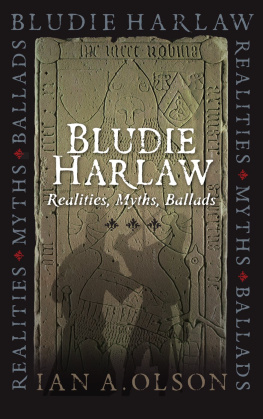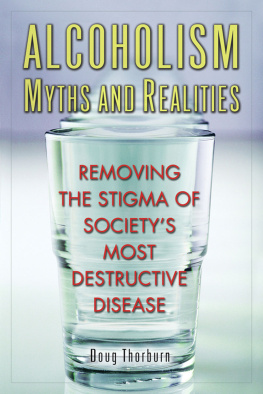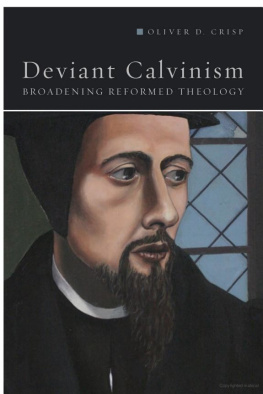Roger E. Olson - Arminian Theology: Myths and Realities
Here you can read online Roger E. Olson - Arminian Theology: Myths and Realities full text of the book (entire story) in english for free. Download pdf and epub, get meaning, cover and reviews about this ebook. year: 2006, publisher: InterVarsity Press / IVP Academic, genre: Religion. Description of the work, (preface) as well as reviews are available. Best literature library LitArk.com created for fans of good reading and offers a wide selection of genres:
Romance novel
Science fiction
Adventure
Detective
Science
History
Home and family
Prose
Art
Politics
Computer
Non-fiction
Religion
Business
Children
Humor
Choose a favorite category and find really read worthwhile books. Enjoy immersion in the world of imagination, feel the emotions of the characters or learn something new for yourself, make an fascinating discovery.

- Book:Arminian Theology: Myths and Realities
- Author:
- Publisher:InterVarsity Press / IVP Academic
- Genre:
- Year:2006
- Rating:3 / 5
- Favourites:Add to favourites
- Your mark:
- 60
- 1
- 2
- 3
- 4
- 5
Arminian Theology: Myths and Realities: summary, description and annotation
We offer to read an annotation, description, summary or preface (depends on what the author of the book "Arminian Theology: Myths and Realities" wrote himself). If you haven't found the necessary information about the book — write in the comments, we will try to find it.
Roger E. Olson: author's other books
Who wrote Arminian Theology: Myths and Realities? Find out the surname, the name of the author of the book and a list of all author's works by series.
Arminian Theology: Myths and Realities — read online for free the complete book (whole text) full work
Below is the text of the book, divided by pages. System saving the place of the last page read, allows you to conveniently read the book "Arminian Theology: Myths and Realities" online for free, without having to search again every time where you left off. Put a bookmark, and you can go to the page where you finished reading at any time.
Font size:
Interval:
Bookmark:
A Hybrid of Calvinism and Arminianism Is Possible
In spite of common ground, Calvinism and Arminianism are incommensurable systems of Christian theology; on issues crucial to both there is no stable middle ground between them.
IN CHAPTER ONE WE SAW THAT THERES MUCH common ground beneath evangelical Arminianism (Arminianism of the heart) and evangelical (even high) Calvinism. In it I attempted to show that in fact Calvinism and Arminianism are expressions of one faith, and that in their classical expressions both affirm human dependency on Gods grace for everything good. For example, contrary to what many Calvinists seem to believe, classical Arminians share with classical Calvinists a firm belief in human depravity and the necessity of divine initiative for salvation. They agree that fallen humans cannot exercise a good will toward God apart from the initiative of grace. In this both honor Scripture and are equally evangelical.
This chapter addresses a different myth: that because of their common ground, Arminianism and Calvinism can be combined, creating a hybrid. It is not unusual in evangelical circles to hear sincere and well-intentioned Christians declare themselves Calminians, a combination of Calvinist and Arminian. I have encountered this claim numerous times when presenting Calvinism and Arminianism to classes in colleges, seminaries or churches. Often students ask, Why cant there be a middle ground between Calvinism and Arminianism? To which someone replies, There isits called Calminianism! A sincere desire to bridge the gulf that has caused so much conflict underlies this misconception. By no means should the desire for unity be belittled; it is admirable even though its fulfillment is, in this case, impossible.
Before plunging into an explanation of why they are incompatible, it would be helpful (especially for those who have skipped the introduction) to review what is meant by Calvinism and Arminianism. If unity is the overriding concern, their stark particularities can be artificially softened. When they are defined in ways that diverge from their classical definitions, combining them is simple. Thus their so-called unity is determined by how we define and describe them. However, when Arminianism and Calvinism are understood in their historical, classical senses, no such combination is possible; they will always remain alternatives, especially in soteriological matters. Calvinism is the system of Protestant Christian belief that stems from the sixteenth-century teachings of John Calvin. It is the most familiar form of the Reformed branch of Protestantism, and its most systematic and logically stringent expression is found in two doctrinal statements of the seventeenth century: the Canons of the Synod of Dort (1618) and the Westminster Confession of Faith (1648). The heart and soul of Calvinism (beyond Protestant orthodoxy) is a distinctive emphasis on the sovereignty of God, especially in salvation. God is the all-determining reality who foreordains and renders This extends to individuals so that they are predestined by God unconditionally to eternal salvation. According to high Calvinism, God also determines to pass over others (the decree of reprobation), leaving them to their deserved eternal condemnation. Gods grace for salvation is irresistible and effectual, and for most traditional Calvinists Christs atoning death on the cross was intended by God only for the elect.
Arminianism stems from the teachings of Jacob Arminius of Holland, who reacted against high Calvinism and rejected many of its distinctive tenets. He and his followers, known as the Remonstrants, denied Calvins monergism (salvation determinism) and opted instead for a self-limiting God who grants free will to people by means of the gift of prevenient grace. God allows his grace for salvation to be resisted and rejected, and determines to save all who do not reject it but instead embrace it as their only hope for eternal life. Christs atonement is universal in scope; God sent Christ to die for the sins of every person. But the atonements saving efficacy extends only to those who embrace the cross by faith. Arminianism confronts monergism with an evangelical synergism that affirms a necessary cooperation between divine and human agencies in salvation (though it places them on entirely different planes). In salvation, Gods grace is the superior partner; human free will (nonresistance) is the lesser partner. Arminius and his faithful followers reacted against high Calvinism without propagating any new doctrines; they pointed back to the Greek church fathers and to certain Lutherans. They were also influenced by Catholic reformer Erasmus.
When Calvinism and Arminianism are so described, their incommensurability should be fairly obvious. The gap between them at several points is wide and deep. It centers around the middle three points of the famous TULIP scheme: total depravity, unconditional election, limited atonement, irresistible grace, and perseverance of the saints. While Arminians accept divine election, they believe it is conditional. While they accept a form of limited atonement, they reject the idea that God sent Christ to die only for a portion of humanity. The atonements limited nature is grounded not in Gods intention but in human response. Only those who accept the grace of the cross are saved by God; those who reject it and seek salvation elsewhere fail to be included in it by their own choice, much to Gods dismay. While Arminians embrace the necessity of supernatural grace for salvation (as for any spiritual good, including the first stirring of the will toward God), they deny that God irresistibly bends human wills so that they are effectually saved apart from their own spontaneous (not autonomous) response.
At the beginning of chapter one I admitted that Arminianism and Calvinism are essentially contested concepts. No one speaks for all Calvinists on everything just as no one speaks for all Arminians about every subject. Thus to back up my thumbnail sketches I appeal to Reformed minister and theologian Edwin Palmer and Arminian (Nazarene) theologian H. Orton Wiley. Describing classical Calvinism, Palmer wrote: The Arminian teaches conditional election; whereas the Calvinist teaches unconditional election, and This, then, is Regarding election Wiley said:
Arminianism holds that predestination is the gracious purpose of God to save mankind from utter ruin. It is not an arbitrary, indiscriminate act of God intended to secure the salvation of so many and no more. It includes provisionally, all men
According to Palmer, and classical Calvinism in general, Christs atoning death was sufficient for the whole world, including every individual who has ever lived or who will ever live, but intended by God only for the elect: The Bible teaches again and again that God does not love all people with the same love, and the atonement of Christ is limited in its scope, that Christ intended to and actually did remove the guilt of the sins of a limited number of peoplenamely, those whom God has loved with a special love from eternity. Wiley, speaking for all Arminians, wrote:
The atonement is universal. This does not mean that all mankind will be unconditionally saved, but that the sacrificial offering of Christ so far satisfied the claims of the divine law as to make salvation a possibility for all. Redemption is therefore universal or general in the
The contrast may not be as crystal clear as we might hope, because both Calvinists and Arminians believe that the atonement is both universal and limited, but in different senses. According to Calvinism the atonement is universal in value; it is sufficient to save everyone. According to Arminianism it is universal in intent; it is meant to save everyone. According to Calvinism it is limited in scope; it is intended to save only the elect and does save them. According to Arminianism it is limited in efficacy; it actually saves only those who accept it by faith.
Font size:
Interval:
Bookmark:
Similar books «Arminian Theology: Myths and Realities»
Look at similar books to Arminian Theology: Myths and Realities. We have selected literature similar in name and meaning in the hope of providing readers with more options to find new, interesting, not yet read works.
Discussion, reviews of the book Arminian Theology: Myths and Realities and just readers' own opinions. Leave your comments, write what you think about the work, its meaning or the main characters. Specify what exactly you liked and what you didn't like, and why you think so.










